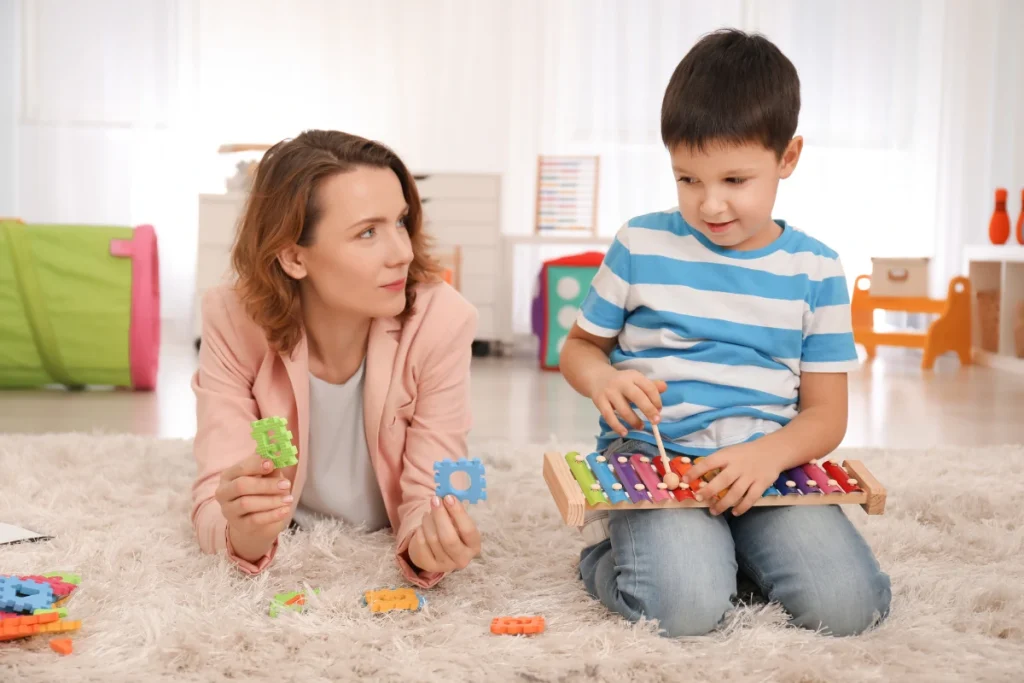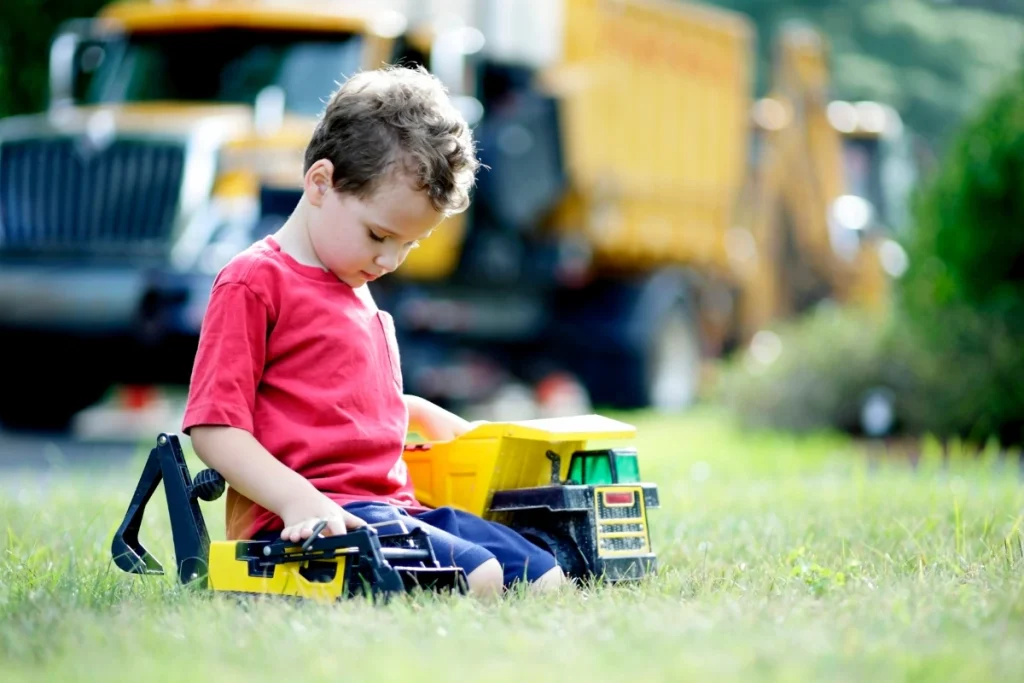You came home with a perfect bundle of joy. You had a lifetime of hopes and dreams for your new little one. You expected sleepless nights and exhaustion, it is part of the territory of being a parent of a newborn. But you did expect to be parents of children with autism.
Over time, you may have noticed that your little one didn’t settle easily. They may have cried more than other babies and not slept well. They may have had feeding issues and screamed every time you touched them. You may have sought medical advice but not have received the help you are so desperately wanted and needed, either being told they will grow out of it, or it is all in your imagination.
You knew instinctively in your gut that something was wrong, but you couldn’t put your finger on it and you didn’t have answers.

And now….
You go out, just wanting some time to do something normal, like eating out with family but end up having to leave because your child has a meltdown.
No-one understands what it is like for parents of children with autism behind closed doors. When you go out you put on a brave face, but inwardly feel judged and misunderstood, with people sometimes commenting that it may be your parenting style that is at fault.
You don’t get invited to dinner parties, children’s birthday parties and all you want is for your child to have the love and acceptance that others enjoy.
You can’t leave your child with Grandma or a friend while you get some much-needed time to yourself, or a short trip away with your partner for some alone time.
If you have other children, you may feel guilty for the time you spend with your neurodivergent child and for how it has changed the entire family dynamic.
You grow more tired, more frustrated, more disillusioned, and while you want to enjoy time with your child, it often feels more like a chore than a joy.

You may have experienced some or all of these challenges, or maybe you are living in the midst of them right now.
These are many of the frustrations I have seen with parents of children that were later diagnosed with autism.
Parenting a neurodivergent child can be challenging. It can also be incredibly rewarding, but there is no denying the work, exhaustion and frustration that can be part of that journey.
Did you know that autism affects 1 in every 54 children in the United States? According to the Center for Disease Control and Prevention, that number is on the rise. As a parent, it can be difficult to know how to support your child but here are 5 strategies that will help in your day-to-day routine.
5 Strategies for Parents of Children with Autism:
1. Early Intervention
In my career of working with neurodivergent families, it has almost always been a “gut feeling” of the parents that has been the first indication. They observe behaviors that don’t seem to add up. They just feel that something isn’t right. If you suspect that something might be wrong, go and seek help from professionals. At the very least, a professional will help you to know what things to look out for, and what things may just be normal individual timing and progress. Early intervention is key when working with neurodivergent children as the earlier you start working with them, the more flexible the brain. While not exhaustive, the first three years are crucial.

2. Create a Structured Environment for your Child
Children with autism have a strong need for structure. Routines and predictability bring them peace and comfort whereas unpredictability and chaos create instability and anxiety.
Routines
Routines are the first place to start. After reading the information above, you can understand the need for your child to have structure, predictability, and the security of knowing what is coming and when.
The problem with routines is, as helpful as they are, they are also diabolical when you must break them because of circumstances that may not be in your control. Just be aware that if there is a break in routine, there is going to be a reaction from your child and prepare as best as you can for that.
If routines must change (for example a new school or classroom) then try to keep as much of their usual routine the same as possible.
Clear Boundaries & Follow Through

Setting boundaries is essential for a child with autism. Constantly changing yard posts give them no frame of reference or security. Let them know clearly what the consequences are for certain actions and follow through with that.
If you need to break a routine for example, and your child acts out, then use the same strategies and consequences regardless of the circumstance.
Setting boundaries is essential for a child with autism. Constantly changing yard posts give them no frame of reference or security. Let them know clearly what the consequences are for certain actions and follow through with that.
If you need to break a routine for example, and your child acts out, then use the same strategies and consequences regardless of the circumstance.
Think about how your child’s brain works. Look at the following two examples:
- If I throw my tablet, it gets taken away from me
- If I throw my tablet, it gets taken away from me, but only sometimes. If I am in a place where I am struggling and I throw it, it gets returned to me.
Knowing what you know about how their brain works, can you see how number one makes sense to them, but they have an inability to grasp the concept of number 2?
Clear boundaries that don’t change and consistent follow through will help them to feel more secure and adhere to the rules.
Rules are Positive
Rules for a child with autism are relief and support. Once they know the rules, they are great followers.
In the music classes I teach, children with autism are always the ones I can rely on to keep the routines and rules of class. They are often the ones pulling up their peers for not following the rules.
Rules make sense to their brain. You know what the rule is, and you follow it. That also goes back to consistency and follow through. The rules are there to be followed, and if you have to break one of them for any reason, just be aware that your child is not going to understand that due to their inflexibility and they will probably challenge you on that.

3. Focus on Communication
Children with autism may have difficulty communicating their needs and feelings. Using simple language, visuals, and gestures can help them understand and express themselves. Assistive technology such as picture communication cards or speech-generating devices can also be used.
Expressive Language
Any change can seem daunting and frightening to the ASD child so use positive, expressive language to reframe the situation. A new school year with a change of room or teacher (let alone change of a whole new school) can be incredibly terrifying. Instead of a start to a new school year, reframe it by speaking about it in exciting positive terms.
“Just think, you will get to see your friends again”
Think of positives that your child will enjoy and focus on those.
Express Appreciation
Change is hard for your child; even small transitions can be difficult so express love and appreciation at their courage in trying. It may not be successful, but their efforts deserve praise and encouragement.
As a child who wants to achieve things perfectly, if you don’t encourage them and they fail, they are less likely to try again.
Visual Cues
Because children with ASD usually have auditory processing deficits, visual cues are a wonderful way for them to see a routine. It has order and structure; it is concrete and something tangible they can pick up and look at rather than an auditory cue which is in the air and then gone if they didn’t get it the first time around.

Few Instructions and in the Same Order
This can really help with transitions. When you give instructions, give 1 instruction at a time and in the same order (if it is a routine that you are following).
For example, if they are getting ready for school, rather than asking them to put on their shoes, brush their teeth, get their bag and go to the car, break it down.
Always do the parts of the transition or routine in the same order, give them one instruction at a time and allow them to complete that task before giving them the next.
4. Encourage Play
Play is essential for children’s development, including children with autism. Encouraging your child to engage in play that is age-appropriate and incorporates their interests can help develop their skills and promote social interaction.
Important skills such as social skills, emotional regulation and cognitive flexibility can be learned through play. These are all skills that neurodivergent children may struggle with. However, play does not come naturally to many children with autism and because of the lack of social skills, playing with others can be challenging.
It is important to remember that playtime should be fun for both of you. If it turns into a power struggle or ends in a meltdown, then you are defeating the purpose. Take it slow and try these tips:

Follow Your Child’s Interests
It may be easy to find out your child’s interests because they may be fixated on certain things. Use this to your advantage and engage in play with them. If they are interested in the activity, there is a greater chance they will persevere for longer, allowing them to practice skills.
Following their interests can also motivate them to want to engage in play more often.
Use Visual Aids
Neurodivergent children are always more visual than auditory because of their challenges with auditory processing so present information and activities in a way that speaks to their strengths. Visual aids allow them to take in more information at once. With auditory information, auditory processing challenges prevent them from processing instructions and conversation in the same way as a neurotypical child. This means information is lost, or they are behind the conversation, their brain struggling to put pieces together.
Visual aids can convey information quickly and accurately, can be absorbed by your child more easily and can provide a structure for play. For example, using picture cards to show your child steps involved in a game helps them to understand the process.
Making playtime more predictable and less overwhelming will result in them being relaxed enough to learn skills. No child learns when they are stressed and anxious.
Play Together
Playing with your child can help them feel more comfortable and confident in engaging in play activities. Try to create opportunities to play together, such as board games or pretend play. The processes needed for these may not come naturally to your child but can teach important skills. You can model appropriate play behavior and help your child develop social skills, such as turn-taking, sequencing, and sharing.

5. Take Care of Yourself
Parenting a child with autism can be challenging and stressful. It’s important to take care of yourself physically and emotionally. Seeking support from family, friends, or professionals, and taking breaks when needed can help you better support your child.
Parental fatigue is real and is much more than just being tired. The information in this book will be your toolbox to supplement any therapies you are doing or if you are pre-diagnosis and suspect there may be something wrong, this may help you determine what those things are.
Taking care of yourself is essential in you being able to look after your child. While some would see taking time for yourself as selfish, I would argue that it is essential. It is being a good parent to make sure you are in a physical, mental, and emotional place to adequately take care of your child.
Work Out Your Time Allotment
Each parent is different, and every situation is unique. You may have good support within the home, you may be a single parent with no support. You may have someone to take the kids regularly so you can get a break, or you may work, or you may never have a break and be with the children 24/7.
You need to work out how much time you need a day or a week to be at a good place emotionally and mentally. It might be 5 mins a day just for you, it could be once a week you need to go out for 2 hours. Just work out what you NEED and then work out what is possible.
Choose Something Just for YOU
It is imperative that this time is just for you. You may choose to do it with a partner, but it must be restorative for both of you. It is not a break to discuss children, problems, or find solutions. It is a part of your world that is designed to feed YOU.
The activity and length of time will depend on many factors – how long you can get someone to watch the kids, finances (if your activity costs anything) and the time you have in your own schedule. Choose something you love to do and something that is a real treat. When times are tough you will have something to hang onto.
Don’t Feel Guilty
Many parents think taking this time for themselves makes them a poor parent. It is exactly the opposite. Don’t spend your time away feeling guilty or obsessed about the children. Even if all you have is 5 minutes, make each one count!
In conclusion, parenting a child with autism can be challenging and stressful but it is also rewarding if you have the appropriate support in place. These top 5 strategies can help not only you support your neurodivergent child but also to ensure you have the correct support in place for you. Seek help when needed, whether it be from professionals, family, or friends, celebrate your child’s progress during the journey and above all, take care of yourself.

Looking for an easy to understand parenting guide that will help you understand your child as well as give you strategies to use at home?
Insights into Autism: A window into your child’s world is a culmination of over 30 years of experience working with neurodivergent children. Learn more.
Diana F Cameron has over 30 years of experience in working with neurodivergent children and shares her practical approach to understanding the unique needs of individuals with autism. As a parent of a grandchild with autism herself, Diana offers valuable insights and practical tips to help parents navigate the challenges of raising a child with autism. In this article, you’ll benefit from Diana’s extensive knowledge and experience, gaining practical strategies and real-life examples to help you support your child’s growth and development. Whether you’re a new or experienced parent of a child with autism, you can trust in Diana’s expertise to offer compassionate and informative guidance on this important journey.

